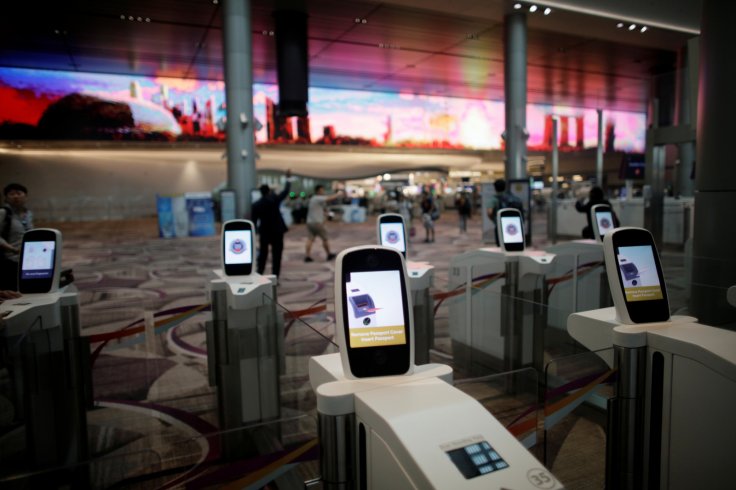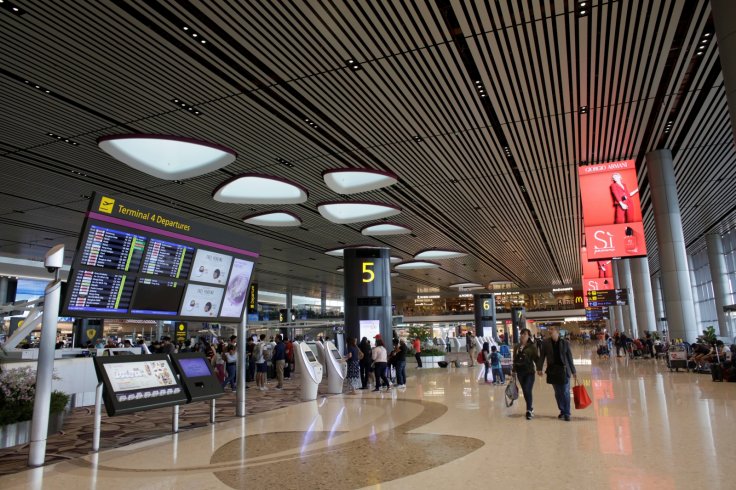
The UK based consultancy, Skytrax, which runs an airline and airport review and ranking site, voted Singapore's Changi International Airport as world's best for past six years. This second-busiest international airport of Asia has built an entire terminal to help test the technologically advanced airports.
What is the Singapore airport implementing?
First of all, it should be noted that the focus is to reduce the manual functions as future airports would not include human officials, except one customs officer. Here, in Singapore, as the plane joins the long line to land, the activities are monitored, detected and identified by cameras and technology that bypass the traditional control tower.
The future airport facilities in Singapore will include a gate with leaser and camera that will guide the passengers to disembark. There will be automated vehicles below unload baggage that will be responsible for delivering robot-packed meals or processing cargo.
Before collecting the luggage, which baggage bots will deliver to the carousel, passengers have to go to the automated immigration turnstiles for face scanning and providing thumbprints. Then the passengers will meet the only human available at the airport premises, the customs official and under their supervision, they will board a driverless airport taxi.
What is the goal of this tests?
In October 2017 Changi opened its Terminal 4 with an idea to develop and test its brand new automation technology. The main motive is to make sure that when at the end of next decade its gigantic Terminal 5 will be opened, the huge building that should be able to handle 50 million passengers a year, all these new techniques will be working properly to become the largest and most automated passenger terminals in the world.
As reported by TODAY online Jeffrey Lowe, managing director at Asian Sky Group in Hong Kong said, "Airports are getting bigger and bigger and need to process higher and higher volumes of passengers. Given the need to provide quick and efficient — seamless — service to passengers, automation is the only way to do this on a large scale."
Why should Singapore embrace the airport bots?
The Lion City has a limited domestic talent pool, as there is less interest in terms of manual labour in fields like baggage handling or packing food trays. Including Changi, in other businesses and services have employees around 21,000 people, who are involved in services such as maintenance, cargo and other related jobs and the contribution is almost 3 per cent of GDP.
However, this technologically advanced structure will also help Changi to stay way to ahead of its other competitors, who are now focusing on extending and developing the airports.
Civil Aviation Authority of Singapore (CAAS) and government-controlled companies such as Caterers Company SATS Ltd have shaken hands together to make Changi world's first technologically superior airport.
While SATS is now working on a vehicle, which will be able to collect the luggage from the plane and move it to the baggage handling area within 10 minutes, there is another electric vehicle, which also in trial process that will be used to ferry documents for air cargo. This company is also focusing on the usage of light detection that would be helpful to map the routes to deliver food trolleys with up to 200 kilograms each to the lounges.

Alexander Charles Hungate, SATS' Chief Executive Officer said in an interview last month that the automation will help the company "manage higher volumes with no additional manpower."
In addition, K. Ajith, an analyst at UOB Kay Hian in Singapore stated that "They've already achieved a higher degree of automation in the in-flight kitchen. Now, they're focusing on the gateway services and the ground handling for aircraft and baggage."
Even though SATS doesn't yet have developed robots to cook chicken or fish, the tray assembly line now has nine employees instead of 45, while packing system has boosted productivity 36 per cent.
The state's flagship technology company, ST Engineering is testing autonomous aerobridges with lasers and cameras that will be aligned to the plane door.
In case of controlling air traffic, CAAS is testing a "smart tower," which will help traffic controllers to monitor the plane via digital infra-red cameras, which are specialized to see beyond the foggy and hazy weather.
While country's Finance Minister Heng Swee Keat said in February 2017 that the construction of the fifth terminal is complicated and will cost "tens of billions of dollars," Shukor Yusof, founder of aviation consulting firm Endau Analytics added that this construction is not for the present but for the future. Yusof also acknowledged the potential of Singapore and said that it is a "nation that is quick to embrace technology."









